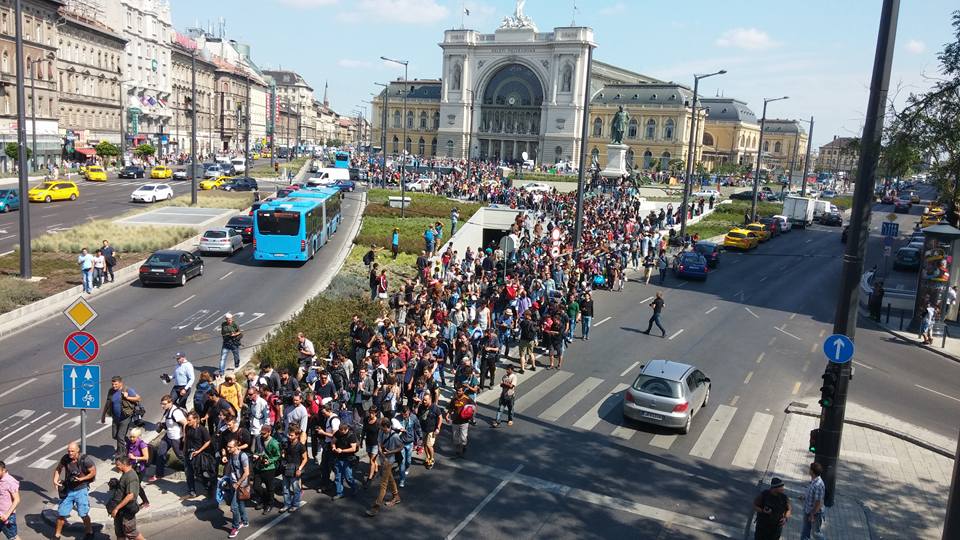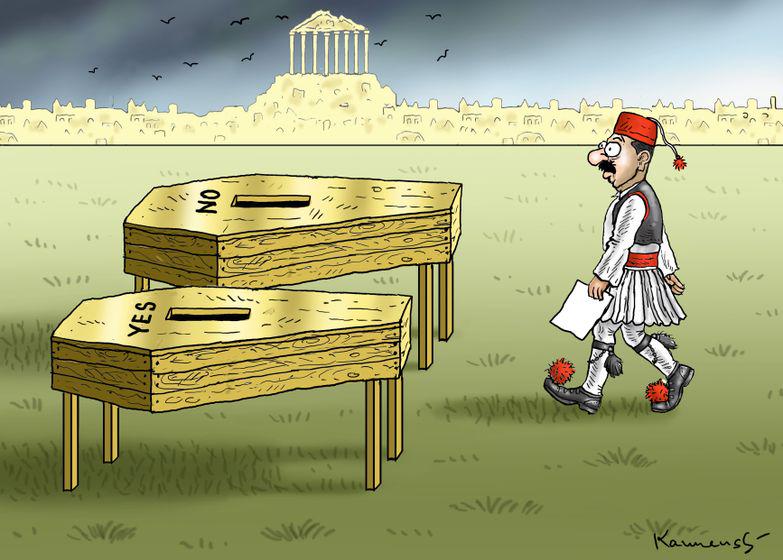They are people, like us.
They are young, they are old, they are men, women and children, they are lawyers or masons or doctors or barbers or plumbers or computer engineers. They are people, and they are coming.
Their countries fell apart, their houses were destroyed, their neighbours died. They lost friends and relatives, they lost their loved ones, they lost a limb. They fled. They took trucks or buses or cars or bicycles. They walked. They were smuggled, assaulted, abused, kidnapped on the way. They crossed a border, or two, or three. They were detained, arrested, beaten. They were parked in camps. They were told to live a life without a future, they were told to wait until their country is fixed, they were told to wait with no end in sight.
And then they came.
Of course they came.
They got on those rickety boats to cross the sea. Some of them were pushed back. Some of them sank and had to return to the coast. Some of them drowned. But they kept coming, and instead of greeting them with open arms, our governments screamed, “we’re being overrun!”
Yes, we’re being overrun. It was about time it happened.
Because as much as you expect people to stay put and die out of sight, out of mind, they have other plans for their life. As a matter of fact, they want a life worth living. And they are coming to get it.
They are coming. Get over it, Europe, they are coming. And if we still want to call ourselves people, if we still want to call ourselves human beings, we will not turn our backs on them, we will not tell them to go away, we will not let them sleep in the streets of our harbours, we will not brutalise them, we will not force them to crawl under our fences, we will not write numbers on their skin and we will not ship them off on trains to nowhere.
There’s a limit to how long you can stay behind the safety of your television screen with pictures of dead children and destroyed cities, and your only reaction is, “how sad”.
For them it’s beyond sad. They lost everything. Then they risked what little they had left to come, and they lost even more. ‘Sad’ doesn’t begin to describe that.
They are not swarms, they are not invaders, they are not quotas. They are people. They want a life, a life in safety, with a job, a home and a future for their children. They are people, just like us.
They are people, and there’s no stopping that.
Today they are walking from Budapest to Vienna. Hundreds, maybe thousands of them, decided that they had enough of Viktor Orban’s nonsense, and when he wouldn’t re-establish the trains, they decided to walk. But these people are only the tip of the iceberg. Europe’s march of shame started thousands of kilometers away.
They are coming because of war, destruction, poverty, hopelessness. But this is a march of shame because we the people, we the European people, elected year after year leaders who don’t care about people but only about votes. And for years, despite our aging population, despite our immense wealth, despite all the good reasons for which we could open our borders, our leaders thought that pandering to the xenophobes was more important than helping people who have lost everything and that we could easily accommodate.
But they won’t wait anymore. They are coming, they are marching on Europe, and they are putting us to shame. For the young man in the picture below, the march of shame started when he pushed his grandmother’s wheelchair out of their family home and onto some road in Afghanistan. He has come thus far. Can anything stop him? Can he be made to go back?
They are coming. And now it is for us to greet them, to care for them, to give them safe passage, to help them build the home they have lost. Not because we are Europeans, not because we have values, not even because we are filthy rich. But because we must be people. Like them.
The title of this post was inspired from this tweet by @sesikar.



 These last few days must be the worst I have had the misfortune to live through since I came into this world forty-one years ago, and that’s not because Greece is heading towards total economic collapse. It’s because the small modicum of democracy we had in this country since six months after I was born has collapsed, with no hope of revival in the immediate future.
These last few days must be the worst I have had the misfortune to live through since I came into this world forty-one years ago, and that’s not because Greece is heading towards total economic collapse. It’s because the small modicum of democracy we had in this country since six months after I was born has collapsed, with no hope of revival in the immediate future.